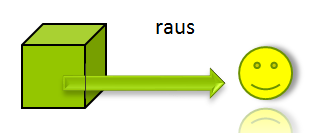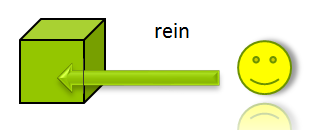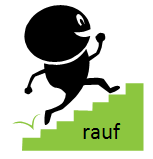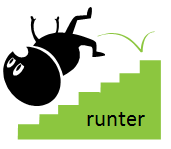German Alphabets : An overview

German A to Z
German has often been viewed by non-Germans as a harsh sounding language. That may be due in part to the more guttural pronunciation of certain German alphabet sounds and diphthongs and perhaps even a still lingering effect of old WWII movie stereotypes. Once non-German speakers familiarize themselves with German’s different sounds, however, another kind of poetic beauty will unfold before them that has been revered worldwide in the works of many German greats, such as Goethe, Schiller through prose and song.The German Alphabet is a vital part of the language, which is spoken by more than 130 million people in 38 countries of the world, Germany, Austria, Switzerland, Liechtenstein, Belgium, and 33 other countries. The alphabet consists of the same 26 letters as English alphabet, plus some extra ones. German pronunciation of letters is in many places the same as English, as well as how to write them, however there are some unique letters and different ways of pronouncing some other letters.
German Alphabet |
| Aa as in the word “ask” and never as in the word “able” |
| Bb same as in English |
| Cc usually in “sch” “ch” or “ck” rarely out of these letters. |
| Dd same as in English |
| Ee as in “elevated” |
| Ff same as in English |
| Gg like in the word “God”, never pronounced as in the word “gym”. |
| Hh same as in English. |
| Ii as in the word “ink” never as in the word “island” |
| Jj similar to the letter “y” in “yacht” |
| Kk same as in English |
| Ll same as in English |
| Mm same as in English |
| Nn same as in English, most of the German letters are just like English. |
| Oo same as in English “Old” never as in “Hot” which is pronounced somehow like {hat} |
| Pp same as in English |
| Qq same as in English but rare. |
| Rr same as in English but slightly like as in “gh” as in the French “Merci” |
| Ss sounds like “z”. |
| Tt same as in English but not as sharp. |
| Uu sounds like “oo” or “uu”, never as in the word “up” or “university” |
| Vv sounds like “f” |
| Ww sounds like “v” |
| Xx same as in English although rare. |
| Yy same as in English although rare. |
| Zz sounds like “ts” |
Additional German letters:
Ä /ä, Ö/ ö, Ü / ü. ß (called scharfes s)
Ä /ä sounds more like “e”
Ö/ ö sounds more like “oe”
Ü / ü sounds more like “ue”
ß sounds like “ss”
Compound letters:
Sch: sounds like “sh”
Ch: sounds sometimes like “sh” or like “kh”.
St: sounds like “sht” at the beginning, and like “st” at the end of a word.

Unique Characteristics of the German Alphabet
- More than 26 letters in the alphabet – German has a so-called extended Latin alphabet
- The extra letters are ä, ö, ü and ß
- The pronunciation of some of these letters do not exist in the English language
- Several letters are pronounced more from the back of the throat: g, ch, r (though in Austria the r is trilled).
- The W in German sounds like the V in English
- The V in German sounds like the F in English
- Most of the time the S in German sounds like Z in English when placed at the beginning of a word followed by a vowel.
- The letter ß will never appear at the beginning of a word.
Das Deutsche Alphabet (The German Alphabet)
Click on the following letters to hear them pronounced. (Audio saved as .wav files.)| Buchstabe/ Letter | Aussprache des Buchstabenamens/ Pronunciation of letter name | Aussprache des Buchstaben – wie in/ Sound of Letter – as in | Beispiele/ Examples |
| A a | ah | astronaut | der Adler (eagle), Januar (January) |
| B b | approximate: bay | baby | der Bruder (brother), aber (but) |
| C c | approximate: tsay | creative, Celcius (soft c sound in German sounds like ts) | der Chor, der Christkindlmarkt(south German term for der Weihnachtsmarkt/ Christmas market), Celcius |
| D d | approximate: day | dollar | Dienstag (Tuesday), oder (or) |
| E e | approximate: ay | elegant | essen (to eat), zuerst(first) |
| F f | eff | effort | der Freund (friend), offen (open) |
| G g | approximate: gay | gorgeous | gut (good), gemein(mean) |
| H h | haa | hammer | der Hammer, dieMühle (mill) |
| I i | eeh | Igor | der Igel (porcupine), der Imbiss (snack), sieben (seven) |
| J j | yot | yellow | das Jahr (year), jeder (each) |
| K k | kah | camel | das Kamel, der Kuchen (cake) |
| L l | ell | love | die Leute (people), das Land (land) |
| M m | em | man | der Mann, die Ameise |
| N n | en | nice | nicht (not), die Münze (coin) |
| O o | oh | oven | Ostern (Easter),rot(red) |
| P p | approximate: pay | party | die Polizei (police), der Apfel |
| Q q | koo | coral | das Quadrat (square), die Quelle (source) Note: All German words start with qu (kw – sound) |
| R r | approximate: er | rich | der Rücken (the back), der Stern (star) |
| S s | es | zoo, shine, mouse | summen (to hum), schön (pretty, nice), die Maus |
| T t | approximate: tay | tyrant | der Tyrann, acht(eight) |
| U u | ooh | ou sound in you | die Universität(university), der Mund(mouth) |
| V v | fow | father | der Vogel (bird), dieNerven (nerves) |
| W w | approximate: vay | van | die Wange (cheek), dasSchwein (pig, wieviel (how much) |
| X x | ix | sounds like kz | das Xylofon/ Xylophon, die Hexe (witch) Note: There are hardly any German words that start with X |
| Y y | uep-si-lohn | yellow | die Yucca, der Yeti Note: There are hardly any German words that start with Y. |
| Z z | tset | sounds like ts | die Zeitung(newspaper), der Zigeuner (gypsy) |
| Aussprache des Buchstaben/ Pronunciation of Letter | Beispiele/ Examples | |
| ä | sounds similar to the e in melon | ähnlich (similar), gähnen (to yawn) |
| ö | sounds similar to the i in girl | Österreich (Austria), der Löwe (lion) |
| ü | no equivalent nor approximate sound in English | über (over),müde(tired) |
| ß(esszet) | double s sound | heiß (hot),die Straße(street |

 The questions „woher?“ and „wohin?“ ask about direction.
They can be written together or separate.
„Wohin gehst du?“ – „Wo gehst du hin?“
„Woher kommst du?“ – „Wo kommst du her?“
The questions „woher?“ and „wohin?“ ask about direction.
They can be written together or separate.
„Wohin gehst du?“ – „Wo gehst du hin?“
„Woher kommst du?“ – „Wo kommst du her?“

 rein = hinein / herein
rein = hinein / herein
 rauf = hinauf / herauf
rauf = hinauf / herauf


 What are German indefinite pronouns?
These are pronouns that do not indicate the gender or number of things/people discussed. To put it simply, they are those vague words like ‘somebody’, ‘everybody’, ‘a few’, and ‘some’. Why are these important to learn? Because sometimes we aren’t able to be – or don’t want to be – too specific!
(Note some of the words’ endings here might change in real speech, according to the gender of the subject. But the main thing at this stage is that you get a feel for how these words look and sound. ? )
So how do we say these indefinite pronouns in German?
Everybody – Alle/Jeder
All of us – Allesamt
Somebody – Jemand/Irgendwer
Nobody – Niemand/Keiner
Anybody – Jedermann/Irgendjemand
Something – (Irgend)Etwas
Somewhere – Irgendwo
Nowhere – Nirgends/Nirgendwo
Both – Beide
Some/a few – Einige
A lot/many – Viel(e)
Those two/three/four – Diese zwei/drei/vier
Any – Irgendwelche(s)
A bit – Ein bisschen
A little – Ein wenig
One/You (eg. ‘One can do this’) – Man
Several – Mehrere
Such/of the like – Solche
Take a look at some of the above words in action:
Niemand will heute Abend mitgehen ———– Nobody wants to go this evening.
Einige von uns gehen ins Kino ——- A few of us are going to the cinema.
Beide sehen gut aus ———- Both look good.
Mehrere von uns wollen mitgehen ———– Several of us want to go.
Alle hier sind verrückt ————– Everyone here is crazy.
Irgendetwas stimmt nicht ———— Something is not right.
Jemand muss mir helfen ———— Someone needs to help me.
Solche Sachen sind hier verboten ———- Such things are forbidden here.
Man muss das Fenster aufmachen ———- One/you must open the window.
Sie ist heute ein bisschen langsam ———— She’s a bit slow today.
Ein wenig Butter und dann stimmt’s ———– A little butter and then it‘s perfect.
Ich gehe nirgendwo hin ———- I’m going nowhere.
Ich brauche irgendwelche Gedichte für meine Hausaufgaben ——– I need any/some sort of poems for my homework.
Es steckt irgendwo im Schrank ———— It’s somewhere in the wardrobe.
I hope this post has been helpful. Any questions, let us know in the comments!
Constanze
What does the German word “irgendwie” mean?
4 Answers
Will McChesney
Will McChesney, bilingual American English/German, by design
Updated Feb 9 2015
In colloquial speech, a great idiomatic translation is often “kinda.”
Ich war halt irgendwie müde, und hatte keine Lust auszugehen.
I was just kinda tired, and didn’t feel like going out.
Es ist mir dann halt irgendwie eingefallen, und ich wusste, was ich tun musste.Then it just kinda came to me, and I knew what I had to do.
Then, as other posters have noted, a common literal translation is “somehow.”
Wir müssen es irgendwie doch schaffen.
We’ll have to get it done somehow.
Bonus! A similar Füllwort (filler word) to irgendwie is quasi. It is also often idiomatically translated as “kinda” or “sorta.”
Dann haben wir Angela Merkel gesehen! Als Bundeskanzlerin ist sie quasi der „Obama von Deutschland“.
Then we saw Angela Merkel! As chancellor, she’s kinda like the “Obama of Germany.”
» Übersetzung(en) tabellarisch anzeigen | immer
» Übersetzungen mit gleichem Wortanfang
» irgend | irgendwann
SYNO eines Tages | früher oder später …
irgendwann
anytime {adv}
sometime {adv}
eventually {adv}
somewhen {adv} [some time] [rare, perceived as archaic or non-standard unless used as a stylistic device, esp. in combination with “somewhere” etc.]
any time {adv}
one day or other {adv}
one of these days {adv}
at one time or another {adv}
at some time or another {adv}
by and by {adv} [old-fashioned]
somewhere along the line {adv} [coll.] [at some time]
irgendwann [in der Zukunft]
some day {adv}
irgendwann einmal
sometime {adv}
irgendwann einmal [früher einmal]
once upon a time {adv}
(früher) irgendwann mal
at some point (in the past) {adv}
irgendwann (mal / einmal)
at some point
Alles rächt sich irgendwann.
What goes around, comes around.proverb
irgendwann in der Zukunft
one day {adv}
(at) some point down the line {adj}
Alles was du besitzt, besitzt irgendwann dich.
The things you own, they end up owning you. [Fight Club]quote
Ich würde gern irgendwann mal Weihnachten Skifahren gehen. [ugs.]
I’d like to go skiing one Christmas.
Vielleicht komme ich irgendwann darauf zurück.
I may take you up on it some time.idiom
Was du Anderen Gutes tust, kommt irgendwann zu dir zurück.
What goes around, comes around.idiom
Wir wurden durch das Fernsehen aufgezogen in dem Glauben, dass wir alle irgendwann mal Millionäre werden, Filmgötter, Rockstars … Werden wir aber nicht!
We were raised to believe that someday we were all gonna be millionaires or movie stars or rock stars. But we’re not. [Fight Club]quote
Irgendwann in Mexico
Once Upon a Time in Mexico [Robert Rodriguez]Ffilm
» Übersetzung(en) tabellarisch anzeigen | immer
» Übersetzungen mit gleichem Wortanfang
» irgend | irgendwann
SYNO eines Tages | früher oder später …
irgendwann
anytime {adv}
sometime {adv}
eventually {adv}
somewhen {adv} [some time] [rare, perceived as archaic or non-standard unless used as a stylistic device, esp. in combination with “somewhere” etc.]
any time {adv}
one day or other {adv}
one of these days {adv}
at one time or another {adv}
at some time or another {adv}
by and by {adv} [old-fashioned]
somewhere along the line {adv} [coll.] [at some time]
irgendwann [in der Zukunft]
some day {adv}
irgendwann einmal
sometime {adv}
irgendwann einmal [früher einmal]
once upon a time {adv}
(früher) irgendwann mal
at some point (in the past) {adv}
irgendwann (mal / einmal)
at some point
Alles rächt sich irgendwann.
What goes around, comes around.proverb
irgendwann in der Zukunft
one day {adv}
(at) some point down the line {adj}
Alles was du besitzt, besitzt irgendwann dich.
The things you own, they end up owning you. [Fight Club]quote
Ich würde gern irgendwann mal Weihnachten Skifahren gehen.
I’d like to go skiing one Christmas.
Vielleicht komme ich irgendwann darauf zurück.
I may take you up on it some time.idiom
Was du Anderen Gutes tust, kommt irgendwann zu dir zurück.
What goes around, comes around.idiom
Wir wurden durch das Fernsehen aufgezogen in dem Glauben, dass wir alle irgendwann mal Millionäre werden, Filmgötter, Rockstars … Werden wir aber nicht!
We were raised to believe that someday we were all gonna be millionaires or movie stars or rock stars. But we’re not. [Fight Club]quote
Irgendwann in Mexico
Once Upon a Time in Mexico]]>
What are German indefinite pronouns?
These are pronouns that do not indicate the gender or number of things/people discussed. To put it simply, they are those vague words like ‘somebody’, ‘everybody’, ‘a few’, and ‘some’. Why are these important to learn? Because sometimes we aren’t able to be – or don’t want to be – too specific!
(Note some of the words’ endings here might change in real speech, according to the gender of the subject. But the main thing at this stage is that you get a feel for how these words look and sound. ? )
So how do we say these indefinite pronouns in German?
Everybody – Alle/Jeder
All of us – Allesamt
Somebody – Jemand/Irgendwer
Nobody – Niemand/Keiner
Anybody – Jedermann/Irgendjemand
Something – (Irgend)Etwas
Somewhere – Irgendwo
Nowhere – Nirgends/Nirgendwo
Both – Beide
Some/a few – Einige
A lot/many – Viel(e)
Those two/three/four – Diese zwei/drei/vier
Any – Irgendwelche(s)
A bit – Ein bisschen
A little – Ein wenig
One/You (eg. ‘One can do this’) – Man
Several – Mehrere
Such/of the like – Solche
Take a look at some of the above words in action:
Niemand will heute Abend mitgehen ———– Nobody wants to go this evening.
Einige von uns gehen ins Kino ——- A few of us are going to the cinema.
Beide sehen gut aus ———- Both look good.
Mehrere von uns wollen mitgehen ———– Several of us want to go.
Alle hier sind verrückt ————– Everyone here is crazy.
Irgendetwas stimmt nicht ———— Something is not right.
Jemand muss mir helfen ———— Someone needs to help me.
Solche Sachen sind hier verboten ———- Such things are forbidden here.
Man muss das Fenster aufmachen ———- One/you must open the window.
Sie ist heute ein bisschen langsam ———— She’s a bit slow today.
Ein wenig Butter und dann stimmt’s ———– A little butter and then it‘s perfect.
Ich gehe nirgendwo hin ———- I’m going nowhere.
Ich brauche irgendwelche Gedichte für meine Hausaufgaben ——– I need any/some sort of poems for my homework.
Es steckt irgendwo im Schrank ———— It’s somewhere in the wardrobe.
I hope this post has been helpful. Any questions, let us know in the comments!
Constanze
What does the German word “irgendwie” mean?
4 Answers
Will McChesney
Will McChesney, bilingual American English/German, by design
Updated Feb 9 2015
In colloquial speech, a great idiomatic translation is often “kinda.”
Ich war halt irgendwie müde, und hatte keine Lust auszugehen.
I was just kinda tired, and didn’t feel like going out.
Es ist mir dann halt irgendwie eingefallen, und ich wusste, was ich tun musste.Then it just kinda came to me, and I knew what I had to do.
Then, as other posters have noted, a common literal translation is “somehow.”
Wir müssen es irgendwie doch schaffen.
We’ll have to get it done somehow.
Bonus! A similar Füllwort (filler word) to irgendwie is quasi. It is also often idiomatically translated as “kinda” or “sorta.”
Dann haben wir Angela Merkel gesehen! Als Bundeskanzlerin ist sie quasi der „Obama von Deutschland“.
Then we saw Angela Merkel! As chancellor, she’s kinda like the “Obama of Germany.”
» Übersetzung(en) tabellarisch anzeigen | immer
» Übersetzungen mit gleichem Wortanfang
» irgend | irgendwann
SYNO eines Tages | früher oder später …
irgendwann
anytime {adv}
sometime {adv}
eventually {adv}
somewhen {adv} [some time] [rare, perceived as archaic or non-standard unless used as a stylistic device, esp. in combination with “somewhere” etc.]
any time {adv}
one day or other {adv}
one of these days {adv}
at one time or another {adv}
at some time or another {adv}
by and by {adv} [old-fashioned]
somewhere along the line {adv} [coll.] [at some time]
irgendwann [in der Zukunft]
some day {adv}
irgendwann einmal
sometime {adv}
irgendwann einmal [früher einmal]
once upon a time {adv}
(früher) irgendwann mal
at some point (in the past) {adv}
irgendwann (mal / einmal)
at some point
Alles rächt sich irgendwann.
What goes around, comes around.proverb
irgendwann in der Zukunft
one day {adv}
(at) some point down the line {adj}
Alles was du besitzt, besitzt irgendwann dich.
The things you own, they end up owning you. [Fight Club]quote
Ich würde gern irgendwann mal Weihnachten Skifahren gehen. [ugs.]
I’d like to go skiing one Christmas.
Vielleicht komme ich irgendwann darauf zurück.
I may take you up on it some time.idiom
Was du Anderen Gutes tust, kommt irgendwann zu dir zurück.
What goes around, comes around.idiom
Wir wurden durch das Fernsehen aufgezogen in dem Glauben, dass wir alle irgendwann mal Millionäre werden, Filmgötter, Rockstars … Werden wir aber nicht!
We were raised to believe that someday we were all gonna be millionaires or movie stars or rock stars. But we’re not. [Fight Club]quote
Irgendwann in Mexico
Once Upon a Time in Mexico [Robert Rodriguez]Ffilm
» Übersetzung(en) tabellarisch anzeigen | immer
» Übersetzungen mit gleichem Wortanfang
» irgend | irgendwann
SYNO eines Tages | früher oder später …
irgendwann
anytime {adv}
sometime {adv}
eventually {adv}
somewhen {adv} [some time] [rare, perceived as archaic or non-standard unless used as a stylistic device, esp. in combination with “somewhere” etc.]
any time {adv}
one day or other {adv}
one of these days {adv}
at one time or another {adv}
at some time or another {adv}
by and by {adv} [old-fashioned]
somewhere along the line {adv} [coll.] [at some time]
irgendwann [in der Zukunft]
some day {adv}
irgendwann einmal
sometime {adv}
irgendwann einmal [früher einmal]
once upon a time {adv}
(früher) irgendwann mal
at some point (in the past) {adv}
irgendwann (mal / einmal)
at some point
Alles rächt sich irgendwann.
What goes around, comes around.proverb
irgendwann in der Zukunft
one day {adv}
(at) some point down the line {adj}
Alles was du besitzt, besitzt irgendwann dich.
The things you own, they end up owning you. [Fight Club]quote
Ich würde gern irgendwann mal Weihnachten Skifahren gehen.
I’d like to go skiing one Christmas.
Vielleicht komme ich irgendwann darauf zurück.
I may take you up on it some time.idiom
Was du Anderen Gutes tust, kommt irgendwann zu dir zurück.
What goes around, comes around.idiom
Wir wurden durch das Fernsehen aufgezogen in dem Glauben, dass wir alle irgendwann mal Millionäre werden, Filmgötter, Rockstars … Werden wir aber nicht!
We were raised to believe that someday we were all gonna be millionaires or movie stars or rock stars. But we’re not. [Fight Club]quote
Irgendwann in Mexico
Once Upon a Time in Mexico]]>  USE of Da in German[/caption]
USE of Da in German[/caption]